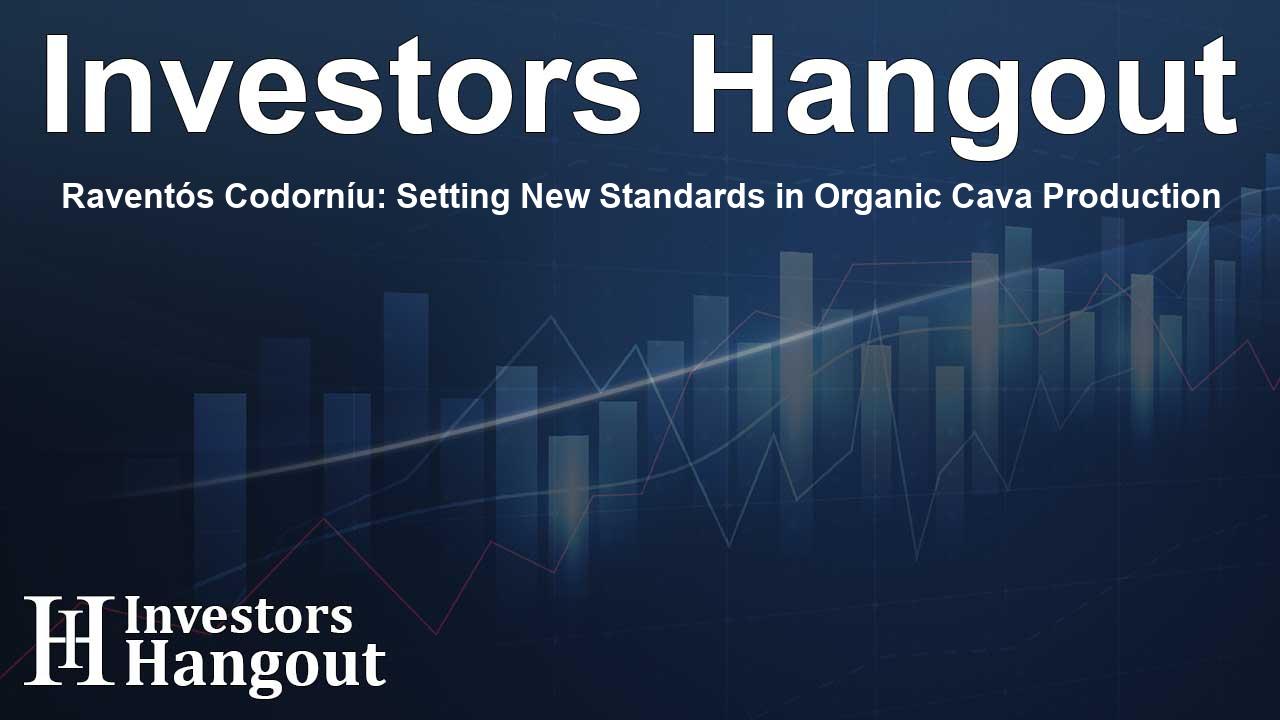Raventós Codorníu: Setting New Standards in Organic Cava Production

Raventós Codorníu: A Leader in Organic Cava Production
Raventós Codorníu has established itself as the world’s largest producer of organic Cava, a significant achievement in the wine industry. With five wineries within their extensive portfolio achieving 100% organic vineyard status, the company signals a strong commitment to sustainable practices. Other wineries in their collection are actively working toward similar certifications, showcasing the company's dedication to organic viticulture.
A Legacy of Winemaking Expertise
With over 470 years of history, Raventós Codorníu is steeped in tradition and expertise. This oldest winery in Spain combines both time-honored practices and innovative techniques to produce exceptional sparkling wines. The company extends its vineyards not only across Spain, but also into regions like Argentina and California. As part of its extensive operations, Raventós Codorníu now oversees more than 7,000 acres dedicated to organic estate vineyards, reinforcing its position as a significant player in sustainable agriculture.
Organic Commitment Across Wineries
Codorníu’s recent transformation marks a significant milestone as all its vineyards have been converted to organic practices. The winery has achieved a remarkable feat by ensuring that 100% of its grapes are certified organic. This commitment is mirrored across other esteemed wineries in the Raventós Codorníu family, such as Parxet, Titiana, and Raimat, all of which are making strides to ensure their offerings align with the organic vision.
From Vision to Reality: The Certification Journey
The path to obtaining organic certification is rigorous, often requiring up to three years to complete. However, this dedication has borne fruit, as Raventós Codorníu celebrated its first fully organic certified harvest in 2022. Now, consumers can expect to see organic Cavas gradually introduced to the marketplace, signaling a future where all products in the portfolio are organic.
Innovative Practices for a Sustainable Future
Raventós Codorníu is on a mission to implement sustainable practices that resonate with the values of modern wine consumers. Recent initiatives have included utilizing a high percentage of recycled materials in packaging and adopting innovative bottling processes. Remarkably, 50% of their bottle production is already utilizing lighter materials, with plans to achieve 100% by the near future. Additionally, the winery is focused on meeting and exceeding energy efficiency standards, currently producing 12.8% of its energy consumption on-site.
Enhancing Soil Health and Community Resilience
Central to the ethos of Raventós Codorníu is the principle of ‘Giving Soil Its Value.’ This guiding philosophy not only aids in improving soil health across their vineyards but also emphasizes the company's commitment to becoming carbon neutral. Their U.S. winery, Artesa Vineyards and Winery, recently gained the Napa Green Vineyard Certification, bolstering their reputation as a leader in sustainable winemaking practices.
Looking Ahead: A Future of Organic Excellence
Raventós Codorníu is poised to become the fastest-growing sustainable wine company globally by 2025-2026. With a robust portfolio of prestigious wineries, they continue to set benchmarks in quality and sustainability. Their commitment extends beyond just producing wine; it embodies a lifestyle choice rooted in environmental stewardship and community engagement.
About Raventós Codorníu
As Spain's oldest producer of wines and Cavas, Raventós Codorníu is a testament to the fusion of tradition and modernity. With over five centuries of experience, the winery spans close to 7,000 acres and encompasses 15 distinguished wineries in regions such as Spain, Argentina, and California. Their unwavering commitment to excellence ensures they remain at the forefront of the industry, meeting the growing demand for organic Cavas and exceptional wines.
Frequently Asked Questions
What is Raventós Codorníu known for?
Raventós Codorníu is renowned as the world's largest producer of organic Cava, with an extensive portfolio of wineries committed to sustainable practices.
What does it mean for a winery to be organic certified?
Organic certification involves adhering to specific farming practices that avoid synthetic pesticides and fertilizers, promoting environmental sustainability.
How does Raventós Codorníu contribute to sustainability?
The winery focuses on recycling materials in its packaging, implementing energy-efficient practices, and enhancing soil health within its vineyards.
Where are Raventós Codorníu wines produced?
Wines are produced across multiple regions, including Spain, Argentina, and California, reflecting a diverse winemaking heritage.
What are the benefits of organic wine?
Organic wines often feature enhanced taste and quality, embodying a commitment to environmental stewardship and healthier farming practices.
About Investors Hangout
Investors Hangout is a leading online stock forum for financial discussion and learning, offering a wide range of free tools and resources. It draws in traders of all levels, who exchange market knowledge, investigate trading tactics, and keep an eye on industry developments in real time. Featuring financial articles, stock message boards, quotes, charts, company profiles, and live news updates. Through cooperative learning and a wealth of informational resources, it helps users from novices creating their first portfolios to experts honing their techniques. Join Investors Hangout today: https://investorshangout.com/
Disclaimer: The content of this article is solely for general informational purposes only; it does not represent legal, financial, or investment advice. Investors Hangout does not offer financial advice; the author is not a licensed financial advisor. Consult a qualified advisor before making any financial or investment decisions based on this article. The author's interpretation of publicly available data shapes the opinions presented here; as a result, they should not be taken as advice to purchase, sell, or hold any securities mentioned or any other investments. The author does not guarantee the accuracy, completeness, or timeliness of any material, providing it "as is." Information and market conditions may change; past performance is not indicative of future outcomes. If any of the material offered here is inaccurate, please contact us for corrections.